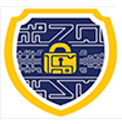Cybersecurity Career Advice
One of the University of the Virgin Islands's objectives is to develop future cybersecurity experts with the support of the Consortium’s K-20 education pipeline within the Virgin Islands. CECOR staff and faculty members at UVI have developed programs professionals to enter the cybersecurity workforce . UVI's CECOR program partnered with three national laboratories to help students gain cybersecurity experience before completing their degree plan.
Student Internships
Internship opportunities are provided by CECOR partners and DOE national labs such
as Sandia National Laboratories, Los Alamos National Laboratory, and Lawrence Livermore
National Lab to high school students, undergraduates and graduates. To learn more
information about the student internships provided through UVI click here.
Full-Time Employment
The workforce behind UVI's CECOR program push to see students succeed. With every
CECOR scholar in mind, strong principles and rigorous courses are offered to allow
students to sharpen their skills. In time, these future professionals will use the
knowledge they acquired gradually gain deeper expertise to build successful careers.
To learn about the industries who are looking to hire cybersecurity professionals click here. (https://niccs.us-cert.gov/workforce-development/cybersecurity-careers)
The SANS Cybersecurity Professional Trends Survey: Years of Experience v.s. Higher Education
The education and certifications a cybersecurity professional receives plays a significant
role in the cybersecurity industry. With evidence from the SANs (SysAdmin, Audit,
Network, Security) Insitute, the pursuit of education is proven to be a positive investment.
The SANs Institute conducted surveys to show the prevalence of having a formal education, receiving certifications and gaining job titles. From February to March of 2014, 4,000 security professionals were surveyed to find the connection between formal education, certifications received and annual salaries.The research concluded that education as well as certifications have an impact on a professionals job titles and annual salaries.
Income by Education Level and Years of Experience
| Education | 0-3 years | 4-6 years | 7-10 years | Overall |
|---|---|---|---|---|
| High School | $47,917 | $75,938 | $115,000 | $89,013 |
| Some College or Technical School | $66,761 | $86,560 | $100,726 | $101,014 |
| Associate's (2-year) degree | $62,302 | $85,000 | $93,418 | $90,601 |
| Bachelor's (4-year) degree | $71,564 | $84,619 | $100,862 | $98,510 |
| Some graduate studies | $79,479 | $87,069 | $100,952 | $106,439 |
| Master's degree or MBA | $82,906 | $97,109 | $109,319 | $109,705 |
| PhD, JD, or equivalent | $121,667 | $114,231 | $128,462 | $125,244 |
This is a SANS: Cybersecurity Professional Trends Survey table that presents the average income by Education Level and Years of Experience. Website: https://www.sans.org/reading-room/whitepapers/analyst/cybersecurity-professional-trends-survey-34615
An entry level professional who has a bachelor's degree and 7 to 10 years experience makes less than a cybersecurity professional who has a Ph.D and 0 to 3 years of experience. To learn more about the research conducted by SANs Institute click here.
Security Certification Have Critical Effects on Career
This SANS: Cybersecurity Professional Trends Survey graph explains the biggest contributing factors to a successful cybersecurity career. Website: https://www.sans.org/reading-room/whitepapers/analyst/cybersecurity-professional-trends-survey-34615


